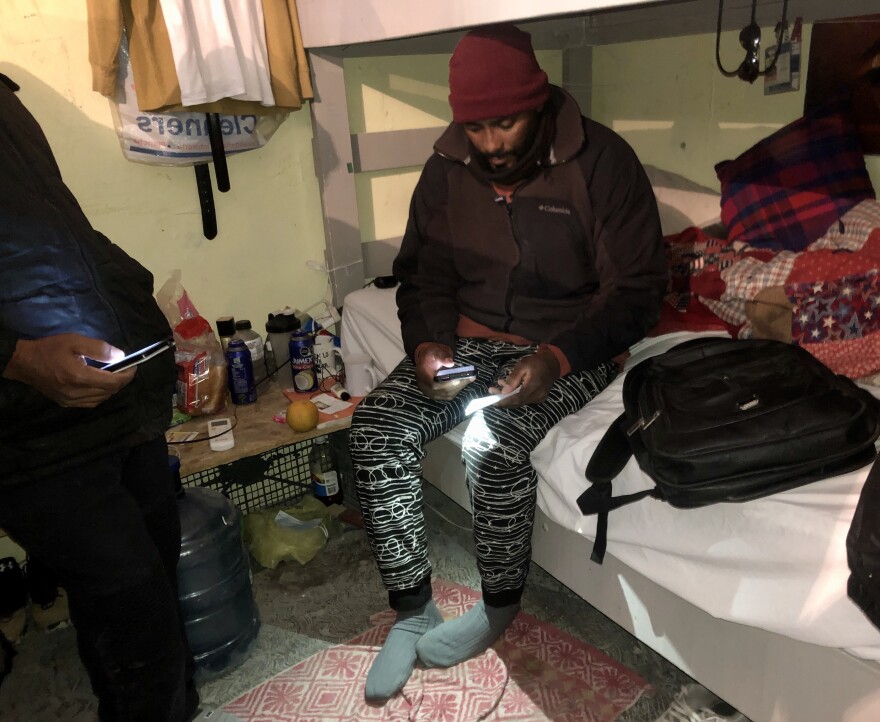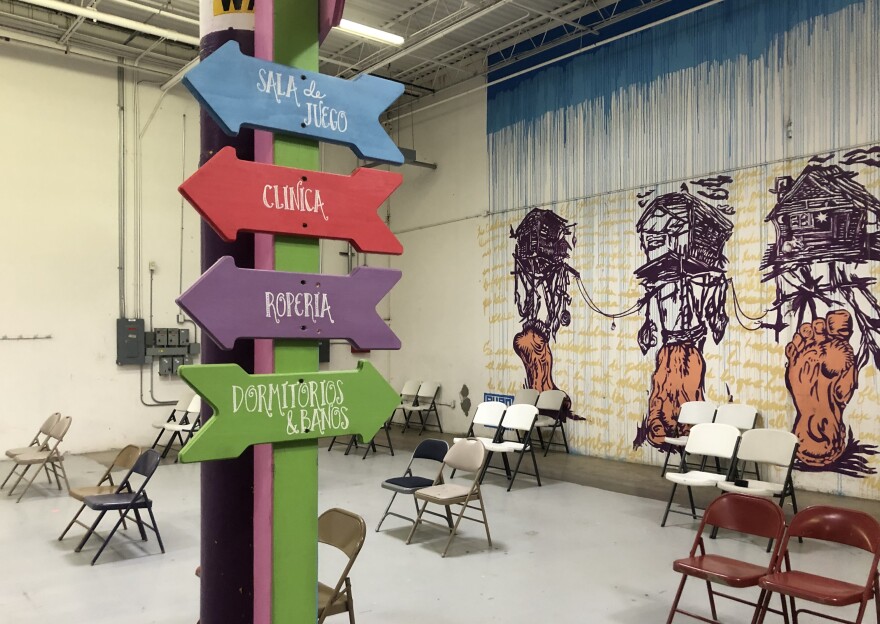On a chilly afternoon in Ciudad Juárez last week, an asylum seeker named Mikel was glued to his cell phone. It was the first day people who had been placed in the “Remain in Mexico” program and still had active cases in immigration court could register to enter the U.S.
The registration site was supposed to go live any minute. So he stood in his room at El Buen Samaritano migrant shelter, surrounded by bunk beds draped with thick blankets for privacy and warmth, and constantly refreshed the page.
Mikel came to the U.S.-Mexico border nearly two years ago, after fleeing political persecution in Cuba, he said. KERA is only using his first name, because he is still in immigration proceedings.
It has been a painful two years in a city that is often dangerous for migrants, Mikel said. Now, it was almost hard to believe the end may be in sight.
“I never thought that this, right now, would be a reality,” he said.

On the campaign trail, Joe Biden promised to end the Trump administration’s “Remain in Mexico” program, formally called the Migrant Protection Protocols or MPP, which requires migrants to wait in border cities like Juárez for their day in U.S. immigration court.
Since taking office, he has stopped enrolling new asylum seekers in MPP and is beginning to unwind the program, by gradually allowing some 25,000 people with pending cases to enter the U.S. and continue their proceedings. Around 70,000 people were initially placed in the program.
The border remains closed to most asylum seekers, under a public health order issued last March that allows immigration officials to quickly expel migrants.
Mikel still has to clear some hurdles, including receiving a date to cross into the U.S. and testing negative for COVID-19 in Mexico.
But once he does all that, he could end up just a few miles away — across the border in El Paso — at a different, more temporary shelter called Casa del Refugiado, or House of the Refugee.
It’s part of a regional network of hospitality sites run by the non-profit Annunciation House.

The site opened in 2019, when a growing number of families arrived at the southern border seeking asylum. At one point, up to a thousand people were dropped off in El Paso each day. So Annunciation House expanded capacity, converting an old warehouse into its largest shelter.
“This building is eminently a building of hospitality,” said Ruben Garcia, executive director of Annunciation House.
On Friday, Feb. 26, the shelter is slated to receive the first group of asylum seekers who were enrolled in MPP in Juárez and now have permission to enter the U.S.
After that, Garcia said, people will arrive gradually each weekday.
“We will average 25 until we feel that the flow is working,” he said, then slowly scale up to 50 people per day, then more.
“We’re gonna assist them to make calls to family that they have in different parts of the country," Garcia said. "Those family members will purchase bus tickets or plane tickets and then they will be on their way."
People will spend between one and four days at the hospitality site.
Annunciation House has done this work before. But there is a new complication: the coronavirus pandemic.
On a recent tour of the site, volunteer Mary Bull showed off some of the safety measures: cots spread far apart, welcome packages for each guest filled with hand sanitizer and wet wipes, plus gummies for children.
Garcia said he consulted with local contagious disease specialists, who visited the site and shared best practices.
“The focus is...how can we do a Bienvenido 2.0?,” said Marisa Limón Garza, deputy director of the Hope Border Institute. It’s one of several nonprofits and faith-based groups that joined with Annunciation House and the local government to form something called the Frontera Welcome Coalition.
Limón Garza says they’re working to balance a humanitarian welcome with health and safety protocols.
“We’re so used to, here in El Paso, having shelters that are expressions of peoples’ faith,” she said. “And so in a COVID scenario where you don’t have that capacity for high touch, the question becomes how do you still show that warmth and care?”
One idea is for volunteers to create care packages for the next leg of the journey, “and include a note or some kind of written expression of love and support.”
Asylum seekers have already started to enter and be welcomed in San Diego and Brownsville. Now, as the process expands to El Paso, migrants like Mikel are eagerly waiting for their moment to cross.
The day the registration site went live, it was overloaded. But Mikel finally managed to register. Soon, he hopes, he’ll receive a date to enter the U.S.
Mallory Falk is a corps member with Report For America, a national service program that places journalists into local newsrooms. Got a tip? Email Mallory at Mfalk@kera.org. You can follow Mallory on Twitter @MalloryFalk.
KERA News is made possible through the generosity of our members. If you find this reporting valuable, consider making a tax-deductible gift today. Thank you.


